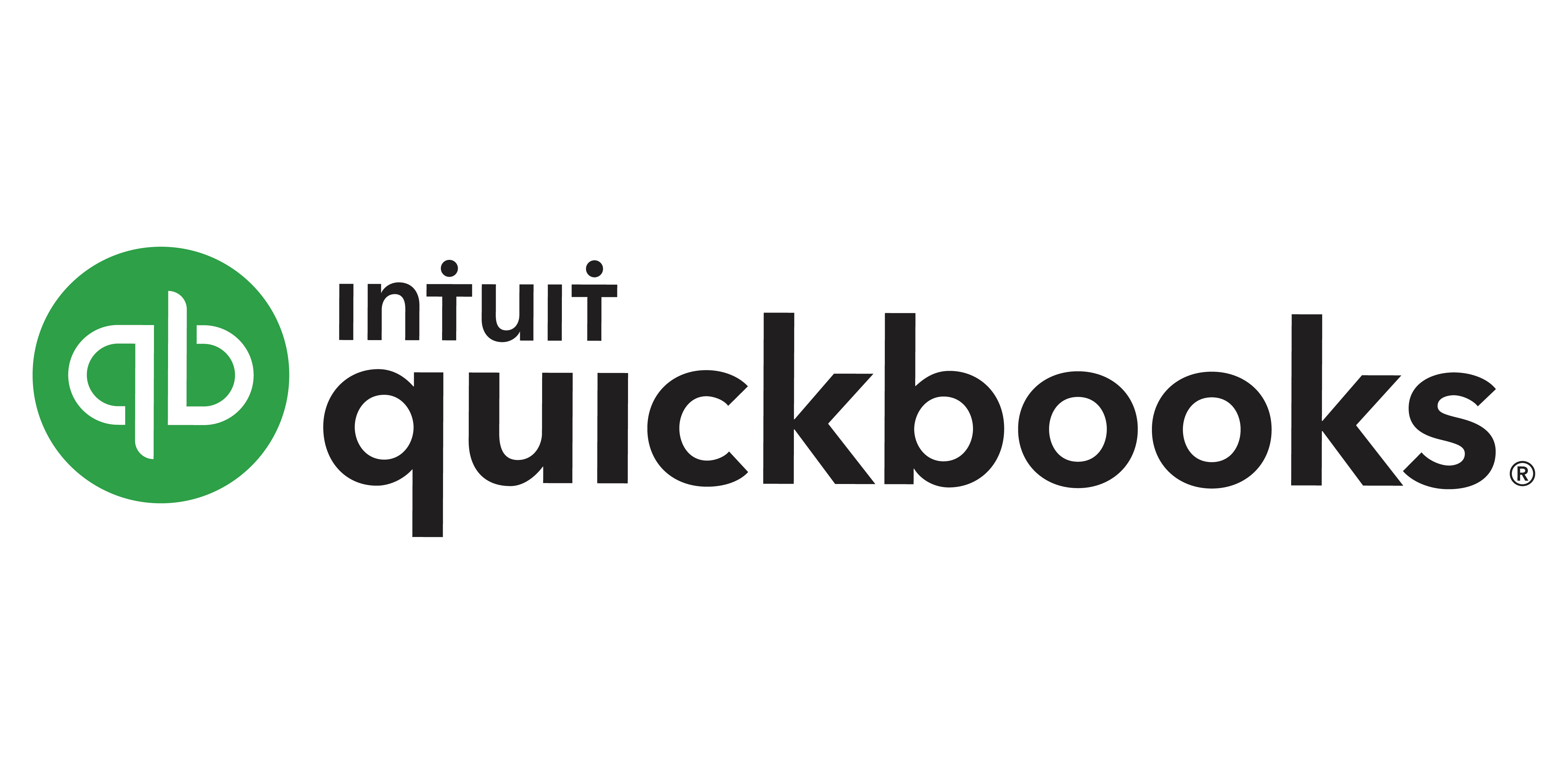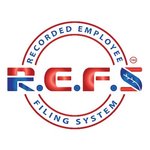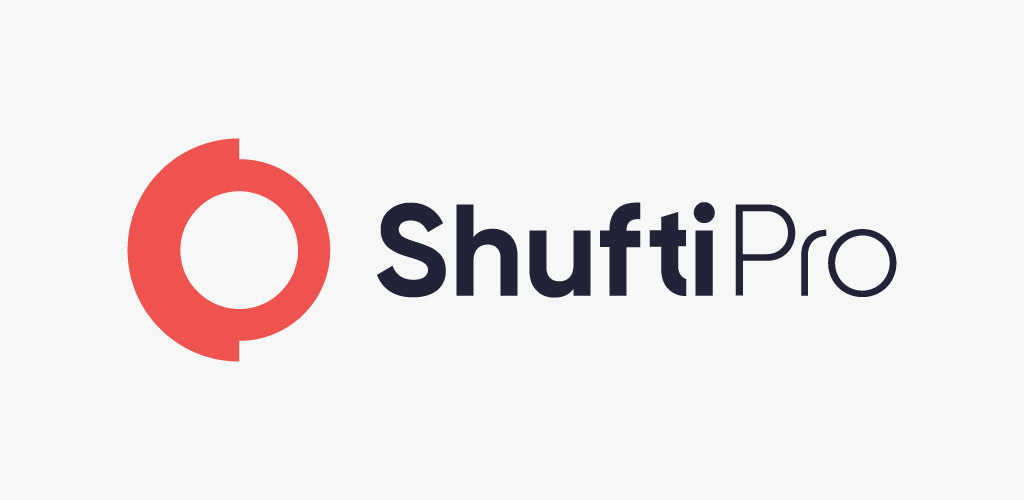Yes, most background verification software is accessible across many devices and platforms, allowing users to oversee the screening process at any time and from any location. This tool enables companies and HR professionals to access and review candidate reports from desktop computers, laptops, tablets, and even smartphones. As long as there is an internet connection, customers may safely see and administer background checks across multiple devices and platforms. This eventually improves the employment process, making it more efficient and accessible to all parties involved.
List of 20 Best Background Verification Software
Workwolf is a hiring solution for streamlined processes and guaranteed resume authenticity. Our cutting-edge technology simplifies applicant screening and verifies resumes, saving employers precious time and minimizing hiring errors. Join the ever-gr...Read More Workwolf
Certifix Live Scan is a widely trusted and efficient fingerprinting software, available nationwide through our extensive network of 1200+ locations. Our advanced electronic submission system speeds up background checks for individuals and businesses,...Read More Certifix Live Scan
Verified First is a professional background and drug screening software designed for fast, compliant, and trustworthy results. With a wide network of screening facilities and a commitment to excellent customer service, our platform ensures a seamless...Read More Verified First
Kennect is a software solution that streamlines sales performance and incentives management. It equips sales teams with intuitive resources to actively monitor, assess, and optimize their sales strategies, helping them stay motivated and achieve thei...Read More Kennect
CareerBuilder Employment Screening is a solution designed to streamline background checks, reduce turnaround times, and seamlessly integrate with your recruitment process. Our software prioritizes accuracy, compliance, and efficiency, giving business...Read More CareerBuilder Employment Screening
Asurint Background Screening Solutions is a tool for streamlined and compliant hiring. This innovative platform uses advanced automation to provide fast and precise results, making it the top choice for leading companies. With its seamless integratio...Read More Asurint Background Screening Solutions
GoodHire is a leading software providing exceptional employment background check services. Our user-friendly interface and fast, accurate results have made us the preferred choice for over 100,000 employers. We have unparalleled expertise in complian...Read More GoodHire
Instant Checkmate is a versatile tool that provides easy access to public records for various purposes. It offers a user-friendly interface and delivers comprehensive background checks, criminal history reports, and contact details. This powerful res...Read More Instant Checkmate
Veritable Screening is the leading background check software in the market. Our advanced technology and dependable support make us the perfect partner for simplifying your screening process. With our team of experts, you can expect swift and complian...Read More Veritable Screening
Checkr the background check software, streamlines the hiring process with advanced technology. Get fast, accurate, and compliant screenings for your business. Over 100,000 satisfied clients rely on Checkrs seamless integration with their existing sys...Read More Checkr
Veriff is an industry-leading digital identity verification platform dedicated to promoting honesty and security in online interactions. Our top priority is safeguarding individuals and businesses from online identity fraud, providing a trusted solut...Read More Veriff
QuickBooks Online, the premier accounting software for entrepreneurs and business owners. Streamline your financial management with its intuitive interface, top-notch security measures, and cutting-edge features such as Online bank connectivity and W...Read More QuickBooks Online
OnboardX solution for businesses in need of a seamless onboarding experience and thorough vetting of their third-party vendors, partners, or suppliers. With over 115 checks and detailed risk reports, OnboardX empowers you to confidently select reliab...Read More OnboardX
Xapien is online research tool that simplifies the process of gathering information. With its advanced technology, Xapien sifts through a vast array of sources, such as news articles, company records, and leaked documents, to provide you with valuabl...Read More Xapien
OnGrid is the top-performing background verification platform in India. Our proven track record of over 100 million verifications and trusted by 3000 clients makes us the go-to solution for reliable and efficient background checks. With our platform,...Read More OnGrid
IDfy is a verification tool designed to provide accurate authentication for individuals and businesses. With our advanced technology, we help you combat fraud and reduce risk, while promoting trust and security. Our streamlined solutions make verific...Read More IDfy
TraQSuite is a software solution designed to benefit businesses by reducing distribution costs, streamlining backend operations, and improving efficiency in supply chain processes. Its industry-agnostic approach makes it suitable for all types of bus...Read More TraQSuite
TazWorks is a background screening solution designed for agencies of all sizes. With its powerful research capabilities, seamless integrations, and valuable business insights, this software delivers a secure and efficient screening experience tailore...Read More TazWorks
Refereesolution for employment verification. With Referee, there is no longer a need for time-consuming phone calls and emails. This innovative tool effortlessly cross-checks applicant histories, providing an efficient and reliable way for HR profess...Read More Referee
Shufti Pro - the industry-leading SaaS platform utilizing cutting-edge AI technology for identity verification, KYC, AML, and KYB screenings. With a worldwide presence and compatibility with 150 languages and over 3000 identity documents, it provides...Read More Shufti Pro
Learn More About Background Verification Software
- What Is Background Verification Software?
- What Are The Recent Trends In Background Verification Software?
- Benefits Of Using Background Verification Software
- Important Factors To Consider While Purchasing Background Verification Software?
- What Are The Key Features To Look For In Background Verification Software?
- Why Do Businesses Need Background Verification Software?
- How Much Time Is Required To Implement Background Verification Software?
- What Is The Level of Customization Available In Background Verification Software?
- Which Industries Can Benefit The Most From Background Verification Software?
- Conclusion
What Is Background Verification Software?
Background verification software is a sophisticated technology that enables organizations to expedite and automate the screening and verification of an individual's personal and professional background information. It is a critical option for businesses seeking to hire dependable and trustworthy employees, vendors, partners, or tenants. With an increasing number of fraudulent actions and misleading claims, firms must undertake a thorough background check to safeguard their brand and mitigate potential dangers.
However, manual background checks are time-consuming, error-prone, and have a substantial impact on the hiring process. This is when background verification software comes in handy. This program collects, analyzes, and verifies a candidate's information using several data sources and complex algorithms, such as criminal records, education and work history, credit ratings, and social media presence.
This comprehensive and automated technique saves time while also producing reliable and unbiased results. Furthermore, background verification software provides configurable features such as established background check templates, real-time status updates, and extensive reports, allowing organizations to develop and run checks based on their specific needs.
In addition to expediting the verification process, this software assures compliance with local and federal legislation, employs stringent data security measures, and integrates seamlessly with other human resources or recruitment systems. Investing in background verification software can give organizations peace of mind while reducing the risk of hiring untrustworthy personnel. It not only aids in making informed judgments, but it also protects businesses from legal and financial ramifications.
What Are The Recent Trends In Background Verification Software?
Background verification software is a must-have for every firm that wants to keep its employees secure and reliable. It enables businesses to verify the qualifications and backgrounds of prospective workers, contractors, and partners in order to reduce potential hazards. In recent years, there has been a considerable growth in demand for background verification software, resulting in the development of new and advanced features and technologies.
Buyers should be aware of the following current trends in background verification software:
1. Artificial intelligence And Machine Learning Capabilities: As technology advances, background verification software is increasingly adding artificial intelligence (AI) and machine learning (ML) algorithms to improve verification accuracy and efficiency. These technologies can swiftly evaluate and compare vast amounts of data, making it easier to detect errors or incorrect information.
2. Social Media Screening: Social media has become an important part of our lives, and it also contains a variety of information that may be used in background checks. Many background verification tools now integrate social media screening, which scans the candidate's online presence for potential red flags.
3. Continuous Monitoring: Traditional background checks are normally performed at the time of hire, but with continuous monitoring, companies may maintain track of their employees' backgrounds throughout their employment. This can assist firms identify any modifications or upgrades to their records, offering ongoing protection.
4. Mobile Applications: As more businesses adopt a remote workforce, background verification software is adjusting by incorporating mobile applications. These apps enable companies to do background checks on candidates and workers directly from their smartphones, making the process more streamlined and effective.
5. International Screening: With globalization, many businesses are employing people from all over the world. As a result, background verification software currently provides international screening services to evaluate candidates' credentials and histories from other nations. This ensures that companies have all of the required information to make sound recruiting decisions.
6. Data Privacy And Security: As technology is increasingly used for background checks, data privacy and security have become priority priorities for both buyers and prospects. As a result, background verification software is employing strong security measures to safeguard sensitive information and ensure compliance with data protection rules.
Benefits Of Using Background Verification Software
Background verification software is an effective tool for screening potential workers, clients, and partners. This software uses advanced technology and algorithms to thoroughly and accurately verify a person's background.
Here are the main advantages of adopting background verification software in your organization:
1) Improved recruiting Decisions: With background verification software, you can be confident that you are making educated and safe recruiting decisions. The software runs a thorough check on a person's criminal records, school and work history, credit ratings, and other information. This allows you to identify any red flags or irregularities in the candidate's background and make the best hiring judgments.
2) Time-And Cost-Effective: Manual background checks can be time-consuming and labor-intensive, particularly in high-volume employment processes. Background verification software streamlines the entire process, saving you time and resources. This not only expedites the hiring process, but it also lowers the cost per hire for your company.
3) Compliance With Regulations: Employment laws and regulations require firms to undertake extensive background checks on their personnel. Background verification software guarantees that you are in compliance with these rules, reducing the danger of legal ramifications for your firm.
4) Reduces The Risk Of Fraud And Negligent Hiring: Negligent hiring can have serious ramifications for an organization, ranging from financial losses to reputational damage. Background verification software conducts a complete and unbiased evaluation of an individual's background, lowering the likelihood of hiring someone with a history of fraudulent behavior or other red flags.
5) Improved Security: By completing thorough background checks on potential employees, background verification software assists firms in maintaining a safe and secure work environment. This is especially important in sensitive businesses where employees have access to sensitive information or interact with vulnerable people.
6) Tailored To Your Organization's Needs: Background verification software enables you to tailor the screening process to your organization's specific requirements. You can select which checks to include based on the position, amount of access, and other factors, ensuring that you receive the most relevant findings.
Important Factors To Consider While Purchasing Background Verification Software?
When it comes to selecting the best background verification software for your company, you must examine a few key elements to guarantee that you are making the best investment for your needs. Here are some crucial considerations to consider while selecting background verification software:
1. The Type Of Background Checks Offered: The first item to consider is the software's background check options. Some software may specialize in specific sorts of background checks, such as criminal record checks, employment verification, or credit checks. Make certain that the software you purchase provides the exact types of tests that are applicable to your company and demands.
2. Compliance With Rules: When performing background checks, it is critical to follow both local and federal requirements. To guarantee that your screening process is legal and ethical, look for software that complies with all applicable requirements, such as the Fair Credit Reporting Act (FCRA) and the General Data Protection Regulation.
3. Integration Capabilities: If you already use other HR software or tools, you should select background verification software that integrates effortlessly with your current systems. This will save you time and effort when transferring data and streamline your entire HR procedure.
4. User-Friendliness: Background verification software might be complex, so select a user-friendly alternative that is simple to access and understand. This not only makes the screening process more efficient, but it also reduces the likelihood of errors and blunders.
5. Customer Support: If you run into any problems or have queries while using the software, it's critical to have solid customer service from the vendor. Before making a purchase, learn about the software's customer support and availability.
6. Customization Options: Every organization has distinct background check requirements. Choose software that offers customization and flexibility to match your individual needs. This will ensure that you get the most out of the program and customize it to your industry and business requirements.
7. Pricing: Finally, analyze the software's pricing. While it may be tempting to choose the lowest choice, keep in mind that high-quality software is often more expensive. Look for software that strikes a mix between pricing and functionality that fit your requirements.
What Are The Key Features To Look For In Background Verification Software?
When shopping for background verification software, consumers should consider a few crucial aspects. This includes:
1. Comprehensive Screening Capabilities: The software should be able to do a full and comprehensive screening procedure that includes all essential areas such as criminal records, employment verification, education verification, credit history, and others.
2. Automated Processes: The program should have automated processes that streamline the background check process, saving time and lowering the possibility of human error.
3. Compliance With Laws And Regulations: The program must comply with all applicable laws and regulations governing background checks, such as the Fair Credit Reporting Act (FCRA) in the United States.
4. User-Friendly Interface: Look for software that is simple to use and browse, ensuring a seamless experience for both administrators and candidates.
5. Customization Options: The flexibility to tailor the software to unique business requirements is critical. This could entail developing unique screening packages, implementing automated alerts, and integrating with other HR systems.
6. Application Experience: The software should have elements to improve the application experience, such as self-service alternatives for submitting essential documents and clear notification about the background check process.
7. Data Security: Because background verification contains sensitive personal information, it is critical to select software that adheres to industry best practices for data security and has enough safeguards in place to secure it.
8. Integration Capabilities: If your company already uses other HR systems, search for background verification software that can work with them to speed processes and eliminate repeated data entering.
9. Reporting And Analytics: The software should have extensive reporting and analytics features that allow enterprises to gain insights into the background check process and identify areas for improvement.
10. Customer Support: Finally, assess the level of customer service provided by the software vendor. Look for software vendors with a reputation for providing great customer service and support to ensure a seamless implementation and continued use of the program.
Why Do Businesses Need Background Verification Software?
Businesses use background verification software to protect the safety and integrity of their operations. This program lets businesses to properly screen prospective workers, vendors, and clients, allowing them to make educated and responsible decisions.
Here are some significant reasons for firms to invest in background verification software:
1. Reduces Risks: Hiring someone with a questionable past might put a company at danger. Before hiring someone, background verification software assists employers in identifying any red flags, such as criminal history, fraudulent activities, or bogus education claims. This reduces the likelihood of future lawsuits, financial losses, and reputational damage.
2. Protects Company Culture: A single bad hire has the potential to demotivate other employees and destabilize the overall workplace culture. Businesses can use background verification software to find individuals who share their company values and have a clean record, resulting in a more pleasant work environment.
3. Complies With Requirements: Many businesses, like healthcare and banking, have stringent requirements governing employee background checks. Background verification software enables firms to comply with these rules and avoid legal ramifications.
4. Saves Time And Effort: Manually performing background checks can be time-consuming and laborious, particularly for firms with a big number of employees. Background verification software automates the process, allowing organizations to execute checks faster and more accurately.
5. Increases Customer Trust: Maintaining a trustworthy image is critical for firms that provide services to clients. Companies can use background verification software to undertake due research on potential clients, ensuring that they are working with a trustworthy firm.
How Much Time Is Required To Implement Background Verification Software?
The implementation time for background verification software varies according to the software's individual requirements and features. Implementing and integrating the software into your existing systems and procedures might take anything from a few weeks to a few months.
The following factors can affect the installation time of background verification software:
1. Program Configuration: The time necessary to configure the program to meet your individual requirements and workflows can affect the overall implementation duration. This includes configuring user access, creating custom reports, and interacting with other systems.
2. Integration With Existing Systems: If you're integrating background verification software with your current HR or application tracking systems, it may take longer to transmit data and ensure seamless communication.
3. Training: Proper training is required for your staff to operate the software efficiently. This can take anywhere from a few days to several weeks, depending on the software's complexity and the number of users.
4. Data Transfer: When migrating data from an old system to new software, it may take some time to verify that all data is correctly moved and structured in the new system.
5. Customization: Some buyers may demand additional features or customizations not included in the basic software bundle. In such circumstances, the software vendor may require additional time to create and apply the adjustments. To guarantee a seamless and timely deployment, explicitly define your requirements and timetables to the software provider, and collaborate closely with their implementation team. This will help you reduce installation time while also ensuring that the program is fully functioning and adapted to your specific requirements.
What Is The Level of Customization Available In Background Verification Software?
Background verification software enables organizations to easily screen potential employees, vendors, and partners to ensure they have a clean track record and are a suitable fit for the company. When looking at background verification software, the level of flexibility provided is a key consideration. Customization is essential for fitting software to an organization's specific needs and processes.
Some background verification software may have limited customization options, but others provide a great amount of flexibility in adapting to diverse industries, company sizes, and compliance laws. Background verification software allows for varying levels of customization. Some tools may provide pre-built packages with pre-defined tests and templates, but others may enable a more personalized and flexible approach.
Businesses must examine their specific requirements and choose software that allows for the appropriate level of flexibility. For example, a small business may simply require a basic background check package, whereas a larger organization may require more in-depth and industry-specific checks. One important customization option to look for in background verification software is the ability to construct custom workflows.
This enables businesses to adjust the verification process to their own hiring or vendor onboarding processes, resulting in a more seamless and efficient experience. Another factor to examine is the capacity to interface with current systems and processes. This can save time and prevent errors by smoothly transmitting data from one system to another. Furthermore, customisable reports and dashboards can provide important insights into the verification process, allowing businesses to make data-driven decisions.
Which Industries Can Benefit The Most From Background Verification Software?
Background verification software may be a useful asset for firms in a variety of industries, allowing them to expedite their hiring processes while also ensuring the safety and reliability of their employees. While the advantages of adopting such software are numerous, certain industries can gain significantly from its features and capabilities.
1. Human Resources: Human resource departments are responsible for hiring and onboarding, making them the key users of background verification software. HR professionals can use these tools to check information provided by prospective candidates, such as previous work, criminal records, and educational qualifications. This ensures that the firm hires skilled and trustworthy candidates.
2. Healthcare: The healthcare industry handles sensitive data and has a responsibility to deliver safe and secure services. Background verification software can assist healthcare firms in screening potential employees to ensure that they meet the credentials and certifications required for their position. It can also search for a history of malpractice or criminal records to ensure the safety of patients and employees.
3. Education: Background verification software can be a valuable resource for educational institutions, especially when hiring academics and staff. These tools can help validate a candidate's educational background and previous employment, ensuring they have the skills and expertise required for their roles. Additionally, it may screen for any history of misconduct or criminal records, assuring student safety.
4. Financial services: In the financial services industry, trust and reputation are essential. Background verification software can help potential employees verify their career history and qualifications while also ensuring that they have no history of financial wrongdoing. This can assist financial firms defend their reputation and consumers.
5. Government and Law Enforcement: Government agencies and law enforcement units are responsible for the public's safety and security. These companies can use background verification software to evaluate potential employees, volunteers, and contractors, ensuring they are qualified and have no criminal history. It can also aid in continual personnel monitoring to ensure the integrity and trustworthiness of these firms.
Conclusion
To summarize, selecting the correct background verification software is critical for every firm or organization. It not only assures a streamlined and quick screening procedure, but also helps to reduce the risks connected with recruiting untrustworthy individuals. Some important considerations to consider while making this decision are the software's dependability and accuracy, interoperability with your existing systems, usability, and cost-effectiveness.
It is also critical to search for features like automated background checks, real-time updates, and customisable reporting choices that will match your individual requirements. Consider the vendor's reputation and track record before making a purchase. Reading reviews and getting suggestions from other professionals in your field can also help you make an informed decision.
Consider requesting a demo or trial period to evaluate the software's functionality and ensure it matches your needs. In today's fast-paced company world, background verification software has become an essential investment for ensuring a dependable and safe workforce. By following the recommendations outlined above, you can confidently choose background verification software that suits your organization's demands while also promoting a trustworthy and safe workplace.
Background Verification Software FAQ's
Can Background Verification Software Be Accessed Across Multiple Devices And Platforms?
Is Background Verification Software Future-Proof And Adaptable To Emerging Technologies Like Ai, Blockchain or Iot?
Background verification software is continually improving to keep pace with technological advances. As AI, blockchain, and IoT continue to affect the future of numerous industries, background verification software evolves to include these technologies. These software technologies, which use AI, blockchain, and IoT, can improve the accuracy, efficiency, and security of background screening. Background verification software, with its capacity to adapt to changing technologies, is not only future-proof but also ensures that enterprises have the most thorough and dependable screening process in place.
Is There A Free Trial Offered To Assess Background Verification Software Before Committing?
Yes, some background verification software vendors offer a free trial to evaluate their product before committing to a subscription. During the trial time, firms can evaluate the software's features and functioning to see if it satisfies their specific requirements. However, not all background verification software companies allow a free trial, therefore it is essential that you research and evaluate several choices to discover the best fit for your company.
Does Background Verification Software Offer Data Security Features And Meet Regulatory Compliance Standards?
Yes, background verification software provides strong data security measures and assures compliance with regulatory requirements. To protect sensitive information, these platforms rely on encrypted communications and secure servers. They also have rigorous data access controls in place, and third-party security audits are performed on a regular basis. In addition, they follow numerous regulations such as GDPR, HIPAA, and FCRA to ensure personal data protection and industry compliance. With background verification software, you can be confident that your data is safe and secure.
Can Background Verification Software Integrate Seamlessly With Existing Tools And Platforms?
Yes, most background verification software integrates effortlessly with existing tools and systems. They are designed to be adaptable and interoperable with a variety of systems, making the integration process simple and effective. This enables firms to continue utilizing their preferred platforms while also including background checks into their hiring process. This integration also makes accurate and up-to-date information easily accessible to employers.






















